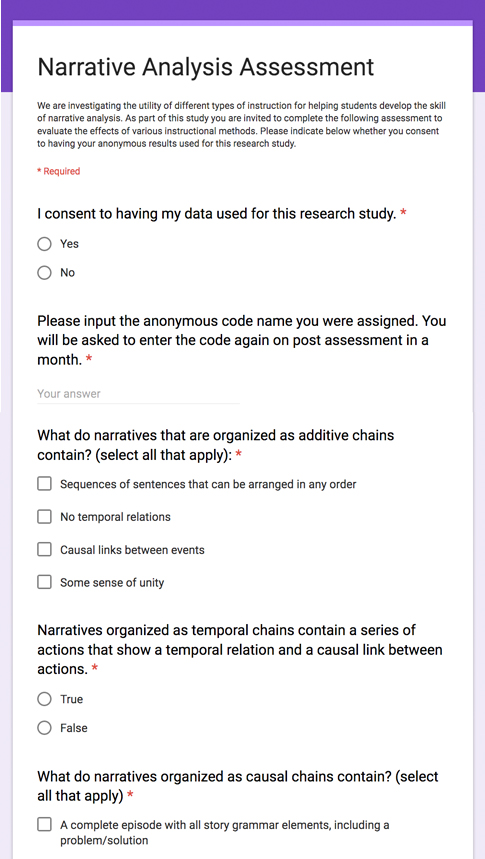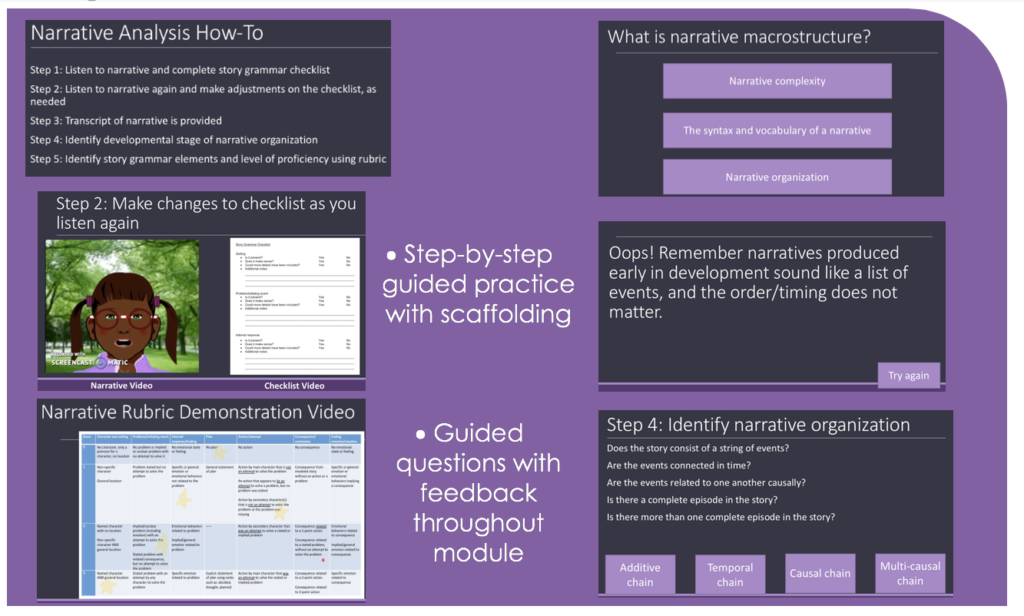Supplementing Classroom Instruction: Investigation of Instructional Methods for Teaching Narrative Analysis
 Alison Hessling working with
Alison Hessling working with
Melanie C. Schuele, Associate Professor of Hearing and Speech Sciences
Overview
Speech-language pathology graduate students are trained on a plethora of evaluation procedures that relate to child language impairments. Narrative analysis is one such procedure that can reliably differentiate between children with and without language impairment (e.g., Scott & Windsor, 2000). Children with language impairments produce less complex, less complete, and unorganized narratives (e.g., Boudreau & Chapman, 2000) and thus analysis of their narrative skills can provide important information regarding their expressive language strengths and needs. However, graduate students often receive limited instruction on how to complete narrative analysis and limited opportunities to practice and receive feedback on the analyses during their graduate programs.
Questions to be answered
1) For graduate students in speech-language pathology, does completion of an online training module result in increased accuracy in completion of narrative macrostructure analysis?
2) What attitudes do graduate students in speech-language pathology report in regards to the value of narrative macrostructure analysis?
Module
Assessment
- Created using Google Forms
- Objective questions
- Narrative macrostructure elements
- Developmental patterns of macrostructure organization
- Two narrative samples
- Items to identify macrostructure elements
- Items to categorize level of proficiency for each macrostructure element
- Content-related attitude survey questions
Results
 Significant difference between pre‐ (M = 48.16%, SD = 11.75) and post‐module assessment (M = 62.58%, SD =14.93) scores; t(18) = 3.56, p = .002.
Significant difference between pre‐ (M = 48.16%, SD = 11.75) and post‐module assessment (M = 62.58%, SD =14.93) scores; t(18) = 3.56, p = .002.
Upon completion of the online training module, students reported seeing value in completing narrative analysis as well as having improved skills to perform the analysis.
Results from this study inform use of online training modules to supplement coursework in graduate communication sciences and disorders courses.

